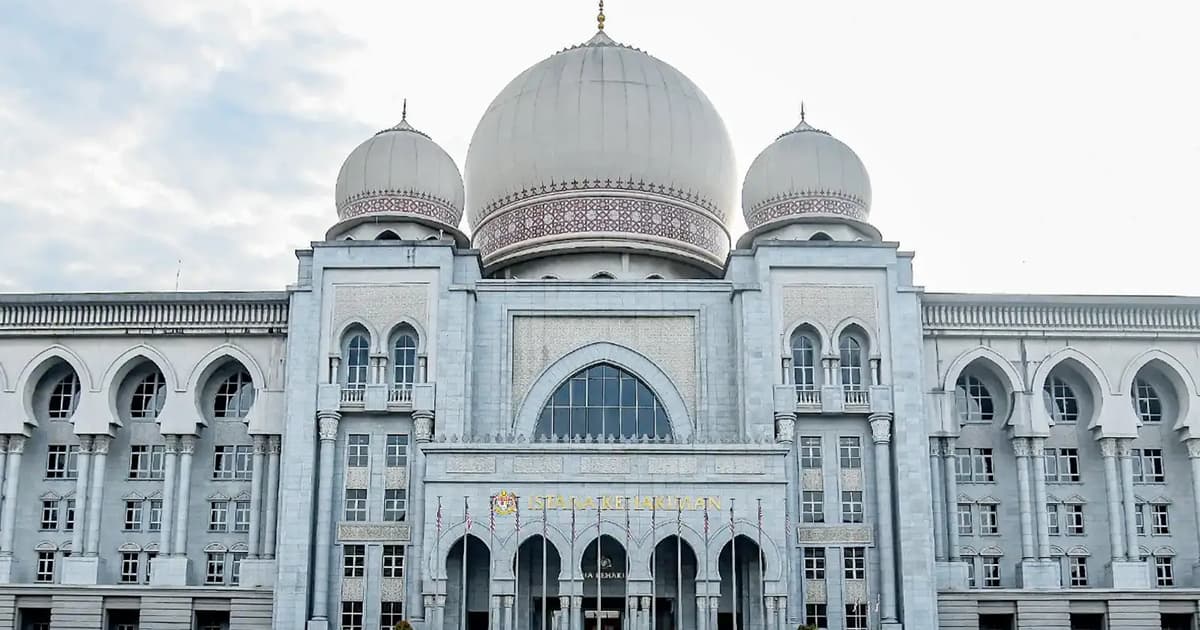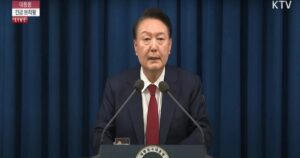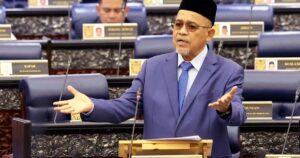
The Federal Court will rule on Nov 12 whether to set aside the decision of another apex court bench, which last year held it had jurisdiction to revise the orders of three pardoned convicts.
A five-member bench chaired by Chief Justice Wan Ahmad Farid Wan Salleh adjourned the decision to next week after hearing submissions by the prosecution and lawyers for the three respondents.
Court of Appeal president Abu Bakar Jais, Chief Judge of Malaya Hasnah Hashim, Chief Judge of Sabah and Sarawak Azizah Nawawi and co-opted Court of Appeal judge Ruzima Ghazali heard the appeal.
On Aug 27, 2024, the Federal Court ruled that the commuted 30-year jail terms handed down on the three inmates – G Jiva, 56, Thai national Phrueksa Thaemchim, 42, and Zambian national Mailesi Phiri, 48 – for drug trafficking should run from the date of their arrest.
In doing so, the three-men bench led by Justice Harmindar Singh Dhaliwal, now retired, overturned orders by the pardons boards of Kedah, Penang and the federal territories that the jail terms run from the date the trio’s death sentence was commuted.
Others who sat on the bench were Justices Hanipah Farikullah and Nordin Hassan, the latter of whom dissented.
The prosecution then filed a review application arguing that the judges in the majority had acted beyond their jurisdiction under the
Revision of the Sentence of Death and Imprisonment for Natural Life (Temporary Jurisdiction of the Federal Court) 2023 Act or Act 847 to review a pardons board’s decision.
On Sept 10, in a 4-1 ruling, the Federal Court said the prosecution had crossed the threshold to obtain leave under Rule 137 of the
Federal Court Rules 1995.
Today, deputy public prosecutor Saiful Edris Zainuddin, submitted that the majority ruling last year must be set aside as the Federal Court had no jurisdiction to hear the applications by the three under the provisional law.
He said only those whose death penalty was converted to natural life imprisonment (remain in jail until they die) by the Pardons Boards could come to the Federal Court to be substituted with a jail term of between 30 and 40 years (life imprisonment) for serious offences.
Saiful said the Federal Court should not have heard the applications by the three as their death sentences were substituted with life
imprisonment.
Deputy public prosecutors Tetralina Ahmed Fauzi, Solehah Noratikah Ismail and Arif Aizuddin Masrom are appearing for the prosecution.
Lawyer K Simon Murali, who is appearing for Phrueksa, urged the bench to apply the doctrine of harmonious construction to arrive at a fair and just interpretation of Act 847.
He said those pardoned and given natural life imprisonment are entitled to come to the court and have it substituted with the life
imprisonment term under Act 847.
Murali said the same rights and entitlements should be accorded to pardoned death row convicts.
“The harmonious construction interpretation will ensure that the equality principle under Article 8 (1) of the Federal Constitution is
preserved,” he said.
Lawyers N Sivananthan who is appearing for Jiva and Abdul Rashid Ismail acting for Mailesi also adopted Murali’s submission.
In the midst of the proceedings, Abu Bakar (Court of Appeal president) suggested that the three could return to their pardons boards and file applications to have their jail term commence from the date of arrest.
Abu Bakar said they could file fresh applications if they failed to get the remedy before the pardons boards.
However, Murali said that their clients would not be able to return to the court, as Act 847 only gave them one chance for a legal remedy.
“They can no longer take the legal route to challenge the decision of the pardon boards as case laws state it is non-justiciable,” he
said.
At a previous hearing, it was revealed that about 120 other convicts faced a similar predicament to that of the three applicants in this case.






